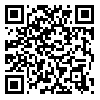Volume 13, Issue 2 (March & April 2022)
BCN 2022, 13(2): 225-236 |
Back to browse issues page
Siavash Parvardeh *1 

 , Mohammad Abbas Sheikholeslami1
, Mohammad Abbas Sheikholeslami1 
 , Shiva Ghafghazi1
, Shiva Ghafghazi1 
 , Ramin Pouriran1
, Ramin Pouriran1 
 , Seyed Erfan Mortazavi1
, Seyed Erfan Mortazavi1 



 , Mohammad Abbas Sheikholeslami1
, Mohammad Abbas Sheikholeslami1 
 , Shiva Ghafghazi1
, Shiva Ghafghazi1 
 , Ramin Pouriran1
, Ramin Pouriran1 
 , Seyed Erfan Mortazavi1
, Seyed Erfan Mortazavi1 

1- Department of Pharmacology, School of Medicine, Shahid Beheshti University of Medical Sciences, Tehran, Iran.
Abstract:
Introduction: Oxidative stress plays a crucial role in the impairment of synaptic plasticity following cerebral ischemia, ultimately resulting in memory dysfunction. Hence, the applying antioxidant agents could be beneficial in managing memory deficits after brain ischemia. Minocycline is a tetracycline antibiotic with antioxidant effect. The main objective of this work was to assess the minocycline effect on the impairment of synaptic plasticity and memory after cerebral ischemia-reperfusion in rats.
Methods: Transient occlusion of common carotid arteries was used to induce ischemia-reperfusion injury in rats. Single or multiple (once daily for 7 days) dose(s) of minocycline were administered before (pretreatment) or after (treatment) brain ischemia. Seven days after ischemia-reperfusion, passive avoidance performance, long-term hippocampal potentiation, and the activity of antioxidant enzymes were assessed.
Results: The passive avoidance test showed that minocycline (20 and 40 mg/kg) significantly increased step-through latency while reducing the duration of staying in a dark chamber in the treatment (but not pretreatment) group. In electrophysiological experiments, the rats treated (but not pretreated) with minocycline (40 mg/kg) showed a significant increase in the amplitude of the field excitatory postsynaptic potentials in the dentate gyrus area of the hippocampus. The treatment (but not pretreatment) with minocycline (20 and 40 mg/kg) resulted in a significant increase in the activity of catalase, glutathione peroxidase, and superoxide dismutase in the hippocampus.
Conclusion: It was determined that minocycline attenuates memory dysfunction after cerebral ischemia-reperfusion in rats by improving hippocampal synaptic plasticity and restoring antioxidant enzyme activity.
Methods: Transient occlusion of common carotid arteries was used to induce ischemia-reperfusion injury in rats. Single or multiple (once daily for 7 days) dose(s) of minocycline were administered before (pretreatment) or after (treatment) brain ischemia. Seven days after ischemia-reperfusion, passive avoidance performance, long-term hippocampal potentiation, and the activity of antioxidant enzymes were assessed.
Results: The passive avoidance test showed that minocycline (20 and 40 mg/kg) significantly increased step-through latency while reducing the duration of staying in a dark chamber in the treatment (but not pretreatment) group. In electrophysiological experiments, the rats treated (but not pretreated) with minocycline (40 mg/kg) showed a significant increase in the amplitude of the field excitatory postsynaptic potentials in the dentate gyrus area of the hippocampus. The treatment (but not pretreatment) with minocycline (20 and 40 mg/kg) resulted in a significant increase in the activity of catalase, glutathione peroxidase, and superoxide dismutase in the hippocampus.
Conclusion: It was determined that minocycline attenuates memory dysfunction after cerebral ischemia-reperfusion in rats by improving hippocampal synaptic plasticity and restoring antioxidant enzyme activity.
Type of Study: Original |
Subject:
Behavioral Neuroscience
Received: 2019/09/21 | Accepted: 2020/08/25 | Published: 2022/03/1
Received: 2019/09/21 | Accepted: 2020/08/25 | Published: 2022/03/1
| Rights and permissions | |
 |
This work is licensed under a Creative Commons Attribution-NonCommercial 4.0 International License. |


